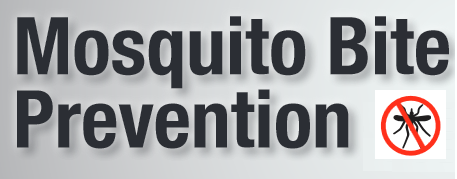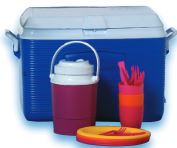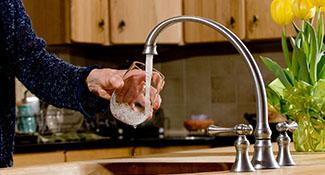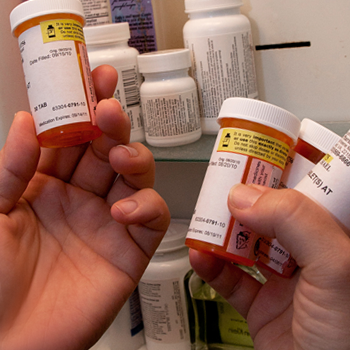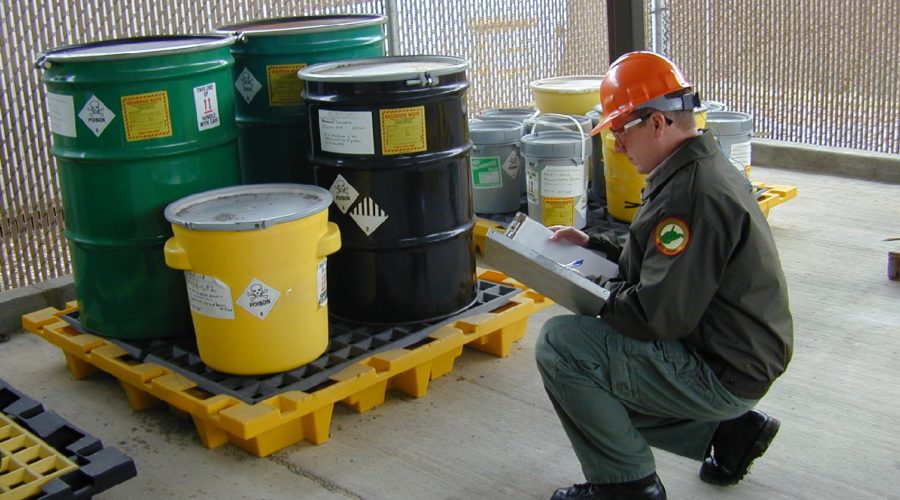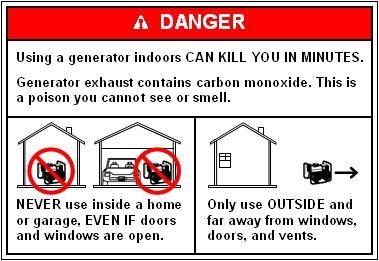Do you inspect food establishments? Then you are aware of the outdated MGL c.94 Section 305D, which indicates that all restaurants with a capacity of 25 persons or more "require a device approved by the department of public health (DPH) that is designed and intended for use in removing food which …
News
Mosquito Bite Prevention
Not all mosquitoes are the same. Different mosquitoes spread different viruses and bite at different times of the day. Protect yourself and your family from mosquito bites. Keep mosquitoes from laying eggs in and near standing water. Once a week, empty and scrub, turn over, cover, or throw out items …
Food Topics
2016 Merged Food Code (This document is a work aid developed by MEHA Executive Board members to review DPH's proposed changes to Chapter 10 of the State Sanitary Code, 105 CMR 590.000, Minimum Sanitation Standards for Food Establishments. Prepared by MEHA for review purposes only. Not an official …
Eating Outdoors – Handling Food Safely
Keeping food at proper temperatures - indoor and out - is critical in preventing the growth of foodborne bacteria. The key is to never let your picnic food remain in the "Danger Zone" - between 40 °F and 140 °F - for more than 2 hours, or 1 hour if outdoor temperatures are above 90 °F. This is when …
Temperature Standards for Dishmachines
High Temperature Machines 150 deg F minimum wash temperature Ideal: 160 – 165 deg F; avoids baking soils on to dishes Wash tank temperature maintained by separate heating source 180 deg F minimum rinse temperature 195 deg F maximum allowed by NSF "Booster heater" heats incoming water to 180 …
Drinking Water Regulations
The National Primary Drinking Water Regulations (NPDWRs or primary standards) are legally enforceable standards that apply to public water systems. Primary standards protect public health by limiting the levels of contaminants in drinking water. View the list of regulated contaminants here. Each …
Using Insect Repellents
Recent outbreaks of mosquito-borne viral illnesses in Puerto Rico and Hawaii have raised questions about how to protect against the mosquitoes that transmit dengue, Zika, and other viral diseases (Aedes albopictus and Aedes aegypti). Insect repellents are one part of a more comprehensive program to …
How to Dispose of Unused Medicines
Most drugs can be thrown in the household trash, but consumers should take certain precautions before tossing them out, according to the Food and Drug Administration (FDA). A few drugs should be flushed down the toilet. And a growing number of community-based "takeback" programs offer another safe …
Norovirus: what is it?
Norovirus is a very contagious virus that can infect anyone. You can get it from an infected person, contaminated food or water, or by touching contaminated surfaces. The virus causes your stomach or intestines or both to get inflamed. This leads you to have stomach pain, nausea, and diarrhea and to …
Schools Chemical Cleanout Campaign
EPA's Schools Chemical Cleanout Campaign (SC3) Tool Kit. Learn more about the EPA's web-based tool kit that can help schools start chemical management programs. …
Food Allergies: What You Need to Know
Each year, millions of Americans have allergic reactions to food. Although most food allergies cause relatively mild and minor symptoms,some food allergies can cause severe reactions, and may even be life-threatening. There is no cure for food allergies. Strict avoidance of food allergens — and …
Exchange Program
MEHA is planning an exchange program with other state affiliates. The Exchange program will allow a MEHA member to visit another region for a week and observe Environmental Health operations in another region. Details to follow …
Loss of George W. Young
MEHA is saddened by the loss of Past President George W. Young Jr. who died on August 19, 2009. A private burial was held and a memorial service is being planned in early October. We extend our heartfelt condolences to George’s family on behalf of all MEHA members. George W. Young, …
Illegal Insecticide Chalk
Illegal Insecticide Chalk, also known as "Miraculous Chalk" or "Chinese Chalk." You may have seen the chalk in a neighborhood store or sold on the street for about $1 a box. It is mostly imported illegally from China and often bears a label in both English and Chinese. Sometimes, like on the …
Model Hazardous Materials Regulation and Inspection Training Toolkit for Local Health Departments
Resource Materials Rationale for Implementation of a Local Hazardous Materials Regulation Model Hazardous Materials Regulation Hazardous Materials Permit Application - including Plan Review Checklist Hazardous Materials Permit Application - completed example Inspection Form …
Food Allergy Training Video
Disclaimer. The Massachusetts Environmental Health Association (MEHA) provides this three part video as a service to our members and visitors. MEHA does not provide a training certificate after viewing the training videos. Learn more about the Massachusetts Allergy Awareness Act here. View the …
Understanding Cookies
Have you ever wondered why some online ads you see are targeted to your tastes and interests, or how websites remember your preferences from visit to visit? The answer may be in the "cookies." A cookie is information saved by your web browser, the software program you use to visit the web. …
What is Phishing?
Phishing is an attempt by an individual or group to solicit personal information from unsuspecting users by employing social engineering techniques. Phishing emails are crafted to appear as if they have been sent from a legitimate organization or known individual. These emails often attempt to …
Generator Use and Carbon Monoxide
CO from a generator is deadly and can kill you in minutes. One generator produces as much CO as hundreds of cars. It can incapacitate and kill consumers within minutes. NEVER use portable generators indoors or in garages, basements, or sheds. They should always be used outside well away from …
